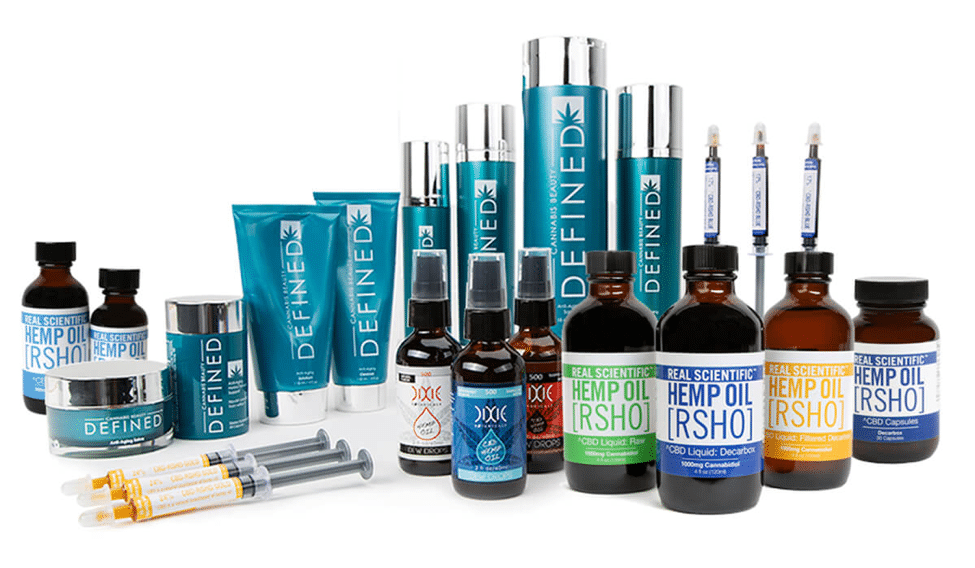
You’ve probably heard of it, you may have even tried it, and there is definitely a product made with it on shelves in your local organic grocery store. But just what is hemp CBD?
How is it different than cannabis CBD? And what kind of market is there for hemp CBD-based products? Let’s start with the basics.
What is CBD?
You may have really started hearing about CBD after Dr. Sanjay Gupta’s CNN special, Weed, where he reversed his previous opinion on the medical efficacy of cannabis. Or maybe you’ve heard of “Charlotte’s Web”, a CBD-based cannabis strain created by the Stanley Brothers with sick children in mind.
CBD is a chemical compound found in cannabis that is most known for its medical properties and lack of psychoactive, or “high”, effects. CBD has become somewhat of a medical marvel since its discovery. CBD shows promise in reducing cancer cell growth, reducing the amount and severity of elliptic seizures, reducing inflammation, alleviating pain from Multiple Sclerosis, reducing anxiety and depression, and much more.
Since the “high” effects from CBD are little to non-existent, some medical practitioners and patients feel better using it as a form of medicine. This rings especially true in the mind of elderly patients and parents of sick children.
What is the difference between hemp CBD and cannabis CBD?
According to an International Association of Plant Taxonomy’s study from 1976, a plant is considered to be hemp when it has less than 0.3% THC and considered to be cannabis when it has more than 0.3% THC. For those keeping track at home, Tetrahydrocannabinol, or THC, is the chemical compound responsible for the high feeling cannabis consumers experience. Whether the percentage chosen seems arbitrary, it is still the main distinction in hemp CBD vs. cannabis CBD in the eyes of the law.
CBD that comes from hemp plants has a lower potency and much less THC than its cannabis-derived sister. This means hemp CBD products have little to no psychoactive side effects, and a much more diluted CBD potency…a positive or a negative depending on who you ask.
How do you grow Hemp CBD?
In order to grow hemp, you have to start with seeds that are CBD-rich and fall under the 0.3% THC mark. But don’t let that fool you into thinking growing hemp is easy. Hemp plants grow to be very tall and aren’t as inclined to thrive indoors as cannabis plants. And since the concentration of CBD in hemp is significantly lower, it takes a lot of plant matter to get a little CBD.
If the practicality, or lack thereof, doesn’t scare you away from growing hemp, maybe the law will. It is completely illegal, save for a few research-based exceptions, to grow hemp in the United States for commercial purposes. Oddly enough though, it is technically legal to process and distribute hemp CBD products in all 50 states and 40 countries, so long as the CBD used abides by the 0.3% THC rule and is made from the seed or stalk of the plant, not the leaves.
What is the market for hemp CBD products?
With the ability to sell hemp CBD products in all 50 states and 40 countries, the hemp-derived CBD market has exploded in the last couple years at a compound annual growth rate of 59%. According to The CBD Report by The Hemp Business Journal, the hemp CBD market grew from a niche and negligible market to $90 million in 2015.
Since the growing of hemp is illegal in the United States, much of the entrepreneurial opportunity is in the processing and distribution of hemp CBD-based products. From hemp CBD tinctures, to lotions, to pills, to salves, to oil…there is no shortage of innovative product lines to be made for the patients and consumers looking for CBD products.

The International Hemp Exchange, hemp’s first digital marketplace, is a perfect example of a company that has taken advantage of the distribution possibilities for hemp CBD and other hemp products. By connecting wholesale and retail buyers to the cultivators and processors around the world where hemp is legally grown, they serve as the middle man in a burgeoning industry.
Companies like the International Hemp Exchange are making it easier for patients living in states that do not allow or allow CBD for medical use but have not set up any sort of CBD commerce laws, to get medicine that may help.
With the amount of hemp CBD market growth we are witnessing, there’s plenty of room for more entrepreneurs to participate.






